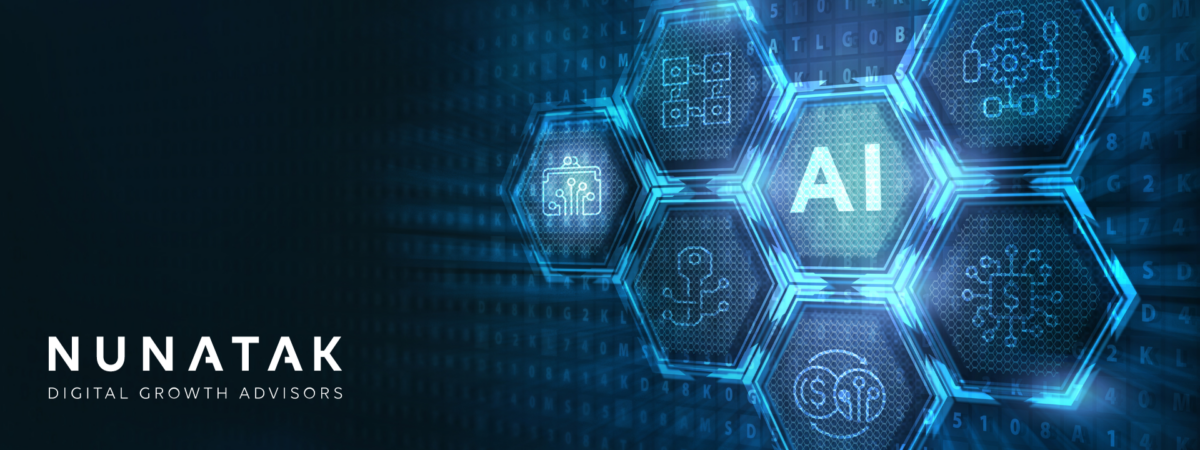GenAI in Marketing: What’s next after the hype?
Marketing forms the ideal playing field for AI – time to consolidate the collaboration between humans and GenAI in a structured way. Read more here!

Marketing and AI – it has to get serious
Few areas rely as heavily on AI as marketing and communications. No wonder, since the advanced deep-learning algorithms offer almost endless potential: From new insights due to the facilitated analysis of large amounts of customer data to AI-supported personalization and automation in the daily work routine, many things have become possible with AI. And of course, Generative AI (GenAI) is also seeing enormous popularity. Its use is considered a turning point that will fundamentally change the value chain.
The anticipation and excitement thus are great among marketing managers and communication professionals. At the same time, GenAI has reached the top of the hype cycle in 2023, and we should get down to the serious questions: What’s really in it for us? What else can we expect from the technology? These are exactly the questions that marketing and communications departments will have to face very soon, and then they better be prepared.
Basically, these questions imply three key aspects:
- Use Cases: What are my top use cases for GenAI?
- Tools: What tools are available in order to implement these use cases?
- Processes: How will workflows in marketing and communications teams need to look like in the future?
Top use cases for generative AI in marketing and communications
To identify the most important use cases, workflows and processes should be analyzed in detail to find out what impact they might have on collaboration in teams as well as with customers. Content personalization plays a key role here. Customers today increasingly expect personalized experiences, and GenAI can play a leading role here. Studies (German content) have shown that personalization significantly increases customer interactions and leads to better conversion rates. To quickly identify relevant use cases, companies should therefore always make a selection based on the added value for key stakeholders. In addition, it is important to critically review the maturity level of one’s organization in terms of technologies and data resources. Prioritization then should be done along these two dimensions: Impact on business success and effort required for implementation.
Available tools and future-proof technologies
The GenAI landscape already offers many technologies that can help with content creation, ad generation, and ad optimization and SEO. Selecting the “right” tools will become even more challenging as this landscape grows. A critical aspect of selecting GenAI tools is their ability to be integrated with your IT infrastructure and their impact on the application environment. It must be ensured that the solutions fit business standards and meet the requirements of the relevant industries. The gatekeepers for the introduction of new solutions should therefore consist of the company’s target market (including market standards), the industry (specific customer expectations), and the technical, functional, and legal requirements.
Changes in the operating procedures of marketing and communications units
Introducing GenAI in marketing and communications requires not only technological adjustments, but also organizational changes. Ethical standards and guidelines must be established, and it must be ensured that the use of GenAI is in line with corporate values and existing regulations. Additionally, the roles and responsibilities of marketing and communications teams are about to change. Employees who model or control GenAI tools will play a significant role in the future. The key here is to ensure that the entire team has an adaptive skill set that keeps pace with the evolution of technology.
In addition to that, the organization as a whole must be prepared for the more comprehensive use of GenAI: Besides business strategy and technical analysis, it is about anchoring the solutions accordingly and connecting departments horizontally in order to better orchestrate structures, roles, and skills. Companies that have not adapted their organizational structures for some time or still have a long way to go in creating a consistent agile mindset should seek help from respective experts. NUNATAK, for example, has created a dedicated design framework for GenAI deployment that enables operationalization within the organization.
The future of AI
The future of GenAI in marketing and communications promises exciting developments. And we are convinced that this is just the beginning. The momentum that GenAI is creating right now can have a long lasting effect regarding overall confidence in the use of AI, changing not only how companies communicate and advertise, but also how they collaborate internally.

If you want to learn more about the potential of AI in marketing, we recommend an exchange with our experts who represented NUNATAK as speakers at DMEXCO. Dr. Holger Feist with his lecture “More than an experiment: How marketing and communication sustainably benefit from AI” (German content) as well as Dr. Fabian Göbel at the BVDW Masterclass “NTR Artificial Intelligence: Mastering innovative opportunities with AI” (German content).
Join the DMEXCO community and watch both events in re-live!
About Nunatak
Nunatak is a digital consultancy founded in Munich in 2011. With over 40 consultants, entrepreneurs and analysts, it is represented in Munich, Berlin, Zurich and New York. The consultancy puts people at the center of digitization and develops forward-looking strategies in close cooperation at eye level with its clients. In doing so, Nunatak combines strategic and analytical know-how with a pragmatic and results-oriented consulting approach. Nunatak specializes in holistic digital strategies, new business models and innovation processes, helps with the digitization of marketing and communication and supports organizational transformation and agilization. In addition, Nunatak paves the way for its clients to realize their sustainability aspirations through data and technology. The consultancy has received several awards, including from Wirtschaftswoche and brand eins.





